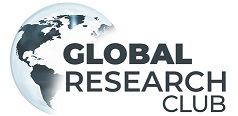The Contribution of Islamic Education to Bridging Global Knowledge Gaps
Keywords:
Islamic education, knowledge gaps, cultural heritages, human development, intellectual traditionAbstract
Islamic education has played a transformative role in bridging global knowledge gaps throughout history by fostering intellectual growth, preserving diverse cultural heritages and facilitating the dissemination of knowledge. Rooted in the Qur'anic emphasis on the pursuit of learning, Islamic education integrated religious and secular sciences, exemplified by the translation movement of the Abbasid era and the establishment of institutions like madrasas. These centers not only preserved ancient Greek, Persian and Indian knowledge but also advanced disciplines such as medicine, mathematics and astronomy, influencing both Islamic and European intellectual traditions. In the contemporary era, Islamic education holds immense potential to address global educational inequalities. By leveraging its holistic approach to learning, which combines ethical and interdisciplinary knowledge, Islamic education can contribute to resolving modern challenges such as poverty, lack of educational access and societal fragmentation. Furthermore, technological advancements provide an opportunity for Islamic institutions to disseminate knowledge globally, promoting inclusivity and cross-cultural dialogue. However, realizing this potential requires addressing challenges such as stereotypes, limited policy support and outdated curricula. Revitalizing Islamic education through modernized content, digital integration and collaborative, efforts with international organizations can ensure its relevance and effectiveness. This study highlights the historical contributions of Islamic education and explores its capacity to bridge contemporary knowledge gaps, advocating for a renewed commitment to its rich intellectual tradition. By fostering a culture of inquiry and universal understanding, Islamic education can continue to contribute meaningfully to global knowledge systems and human development.
Downloads
Published
How to Cite
Issue
Section
License
Copyright (c) 2025 Hafiz Taj Din

This work is licensed under a Creative Commons Attribution-ShareAlike 4.0 International License.





